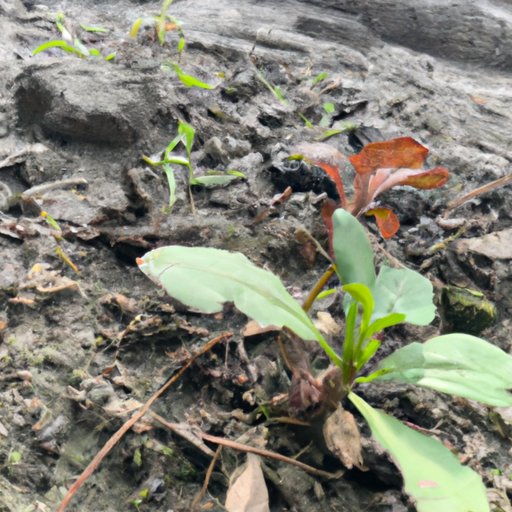Introduction
Abiotic factors are an important part of science, especially when it comes to understanding how the environment works. But what does abiotic mean in science? Abiotic factors are non-living components of an ecosystem, such as climate, soil, water, and air. These factors interact with each other and with living organisms to create a complex ecosystem that is essential for life.
Overview of Abiotic Components in Nature
Abiotic components in nature can be divided into two categories: physical and chemical. Physical components include temperature, light, wind, precipitation, topography, and soil type. Chemical components include oxygen, carbon dioxide, nitrogen, phosphorus, sulfur, and other elements that are necessary for life. These components interact with each other and with living organisms to create a dynamic and ever-changing environment.
Exploring How Abiotic Components Affect the Environment
The role of abiotic factors in ecosystems is essential for maintaining a healthy environment. Abiotic processes, such as photosynthesis and nutrient cycling, help maintain the balance of nutrients in the soil and water. These processes also help regulate the climate by controlling carbon dioxide levels in the atmosphere, which affects the global climate. Additionally, abiotic components can affect the availability of food sources and habitat for animals and plants.

Understanding Abiotic Processes and Interactions
In order to understand how abiotic components interact with each other and with living organisms, scientists must study these processes. For example, researchers have studied the effects of different abiotic factors on plant growth. One study found that increasing temperatures could cause faster growth in some plants, while drought conditions could lead to slower growth in others (Liu et al., 2017). This research helps us better understand how abiotic factors can influence the environment.
Examining the Impact of Abiotic Factors on Organisms
Abiotic factors can also have a significant impact on organisms. For example, changes in temperature, light, and water availability can all affect the growth and development of organisms. Additionally, abiotic components can influence the behavior of organisms, such as their migration patterns or mating behaviors.

Investigating Abiotic Factors on Global Climate Change
Abiotic factors can also play a major role in global climate change. Changes in the Earth’s atmosphere, such as the buildup of greenhouse gases, can lead to an increase in average global temperatures. This can have a major impact on the environment, leading to extreme weather events, rising sea levels, and changes in ecosystems.

Examining the Effects of Abiotic Factors on Organisms
Abiotic factors can also have a direct effect on organisms. For example, increasing temperatures can cause coral bleaching, which can lead to the death of coral reefs. In addition, changes in the availability of water can affect the growth and abundance of certain species, as well as the availability of food sources for those species.
Conclusion
In conclusion, abiotic factors play an important role in science and nature. They are non-living components of an ecosystem and interact with living organisms to create a complex and ever-changing environment. Abiotic components can affect the environment, including global climate change, as well as organisms, such as their growth and behavior. Understanding abiotic processes and interactions is essential for maintaining a healthy environment and studying the effects of climate change.
(Note: Is this article not meeting your expectations? Do you have knowledge or insights to share? Unlock new opportunities and expand your reach by joining our authors team. Click Registration to join us and share your expertise with our readers.)
